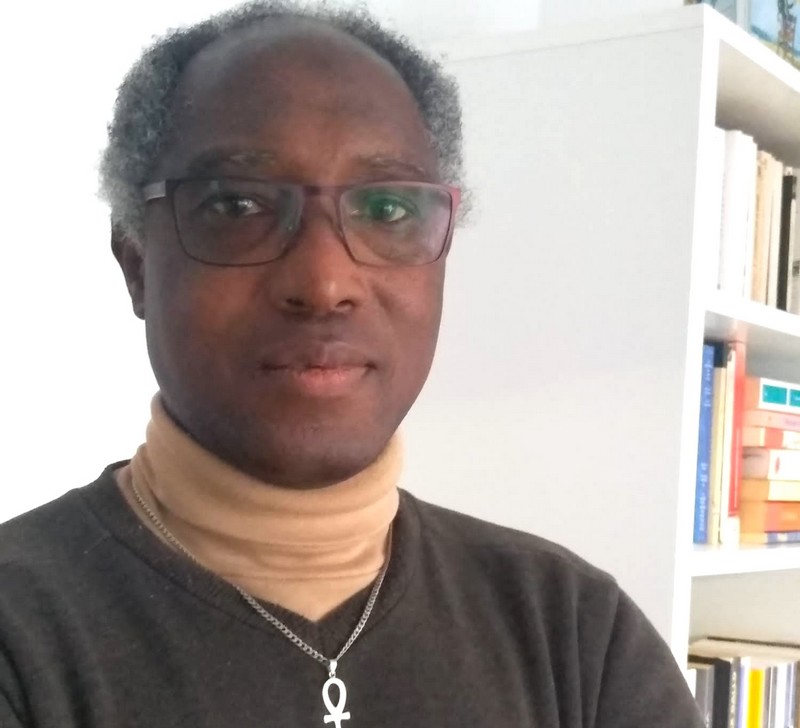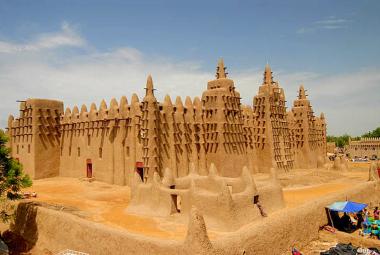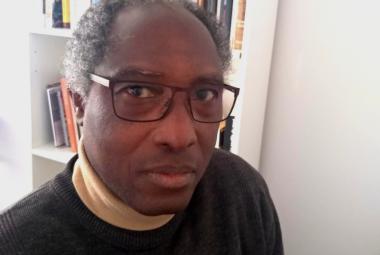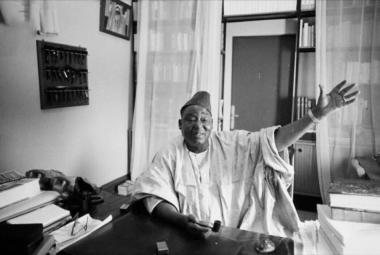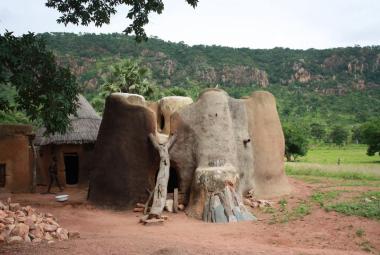Beninese journalist and writer, author of numerous historical essays on Ancient Black Africa, in particular on Ancient Egypt and Ancient Nubia, Marcus Boni Teiga is one of the Antiquists and best specialists in Nubian studies. Winner of the Imhotep International Prize in 2014 at the Pan-African Book Fair in Brussels for all of his work on ancient Nubia, he continues to document the most remote past of Black Africa. The journalist Wonder Hagan interviewed him about his research, his discoveries as well as the return to Africa of looted cultural property and the nagging question of reparations inherent to the History of Black Africa in particular.
How much of African history is stuck in Europe?
I think there is still a large part of African history that remains stuck in Europe. Starting with the Archives of the two key periods of Slavery and Colonization. Concerning the Post-colonial period, Africans themselves should know it better.
That said, we should not always blame the former colonial powers. I find it absolutely absurd that our States, most of which have been independent for at least fifty years, do not still claim to this day some of their Archives and among them the keys to learning, understanding and teaching History, as it should has been passed to future generations.
Is African history well preserved? Looking at the evolution of the world and cultural adaptations by young Africans?
I will perhaps surprise or disappoint you if I tell you that Africa, and when I say Africa I am specifically talking about Black Africa, has really not yet begun to write its ancient history. There were great pioneers including the Senegalese scholar Cheick Anta Diop but also many Black people from the Diaspora around the world. However, there is so much to do in this area that, in my opinion, Black Africa has not yet begun to write its ancient history.
The fact is that there has never been any political will in this matter. How many of our heads of state in Africa consider that history is important for their country and for Black Africa?
There are not many of them. However, every human society needs its History to project itself into the future. Black Africa needs it all the more since its ancient history has been falsified or simply misinterpreted. Regardless of the cultural adaptations of young Africans or Afro-descendants today, the absolute necessity is that the History of Black Africa be restored without being embellished and that Black Africa reappropriates its ancient History to transmit to future Generations, as it should be.
For example, there is a debate today, it is Ancient Egypt. I am not going to dwell on this subject otherwise we will spend several days there...Because I am very comfortable talking about Ancient Egypt as well as Ancient India. I have devoted several books to providing indelible proof that the Ancient Egyptians were black people from Africa. Better still, my people, the Natemba of North-West Benin still speak the language of Predynastic Egypt inherited from their Ancestors. And they have the same ancestors as the Nanumba, Dagomba and Mamprusi of Northern Ghana. The ancestors of today's Natemba were Mamprusi priests. You are from Ghana and you can go and verify what I am telling you with the Kings of Northern Ghana...
What is your take on the recent return of many African artifacts by former colonialists?
There is neither reason nor justification for former colonizing countries to continue to keep goods and other artifacts that do not belong to them, and what is worse is that most of them were stolen. This is a normal return. And they should even be accompanied by compensation. If one could have thought and say that the Black man is a sub-man, then why steal the creations of the sub-man? It was simply a scam on every level. And I think that Black Africa should learn the lessons of this entire period of history where the Black man was not only despoiled but dehumanized.
Besides returning these historical items for short-term occupancy, is it right to discuss reparation as Ghana’s president Akufo-Addo propagates?
The President of Ghana, Nana Akufo-Addo, is absolutely right. We need to talk about reparations with the West for many things. But not only with the former colonizing countries of Europe. We must do the same thing with Arab countries, because the Arabs are the first to enslave black people. There was never any repair. Worse, there was never even an apology.
I must say that before President Nana Akufo-Addo, I remember that many others like the former President of Nigeria, Olusegun Obasanjo and his friend and brother the former President of Benin, Nicéphore Soglo, had spoken about it. Also. But I will tell you the truth, in any case it is my opinion, and I keep saying it: as long as the Countries of Black Africa do not have a Union, League or Community - it does not matter how they do or call it - they will never succeed in this fight. I take this opportunity to once again call on our heads of state and government for a Union of Black African countries beyond their membership in the African Union. The salvation of Black Africa and its struggles for its peoples is at this price.
And afterwards, we can talk about what is reparable or not, or how to repair the wrongs that Black Africa has suffered. And above all how Black Africa should do so that this never happens to it again...
What is the most interesting thing you have learned about Africa that you think the rest of the world should know about?
There are obviously many things to share when you are passionate about the Antiquity of Black Africa. But my most interesting discovery, at least for my part, is to know that the Nanumba, Dagomba and Mamprusi of Northern Ghana and the Natemba of Northern Benin Republic in West Africa have the same Ancestors as they share with the Luo and many other related peoples in East Africa. And all these peoples from whom the ancient Egyptians descend shared the same language long before the founding of Egyptian Civilization. While some migrated from South Sudan to West Africa, others did so towards India. It is for this reason that the Natemba language still shares the same linguistic substrate with ancient Egyptian and Indian languages. In a word, Yoga was born in the Nile Valley before being transported to India by migrants left the Nile Valley at least 15,000 years before Christ.
What would you recommend as a solution for African countries and governments to promote their history particularly in an evolving world of technological inventions and other developments?
I would first say that each country must bring together its national researchers, and if necessary add external skills, to write its History. It is not a question of embellishing History, because these are facts that are always stubborn in their evidence, it is a question of restoring it by ridding it of all traces of partiality or falsification or even misinterpretation. In second place, we must replace History, which has been taught for a long time and which, as everyone knows, contains many errors or voluntary or involuntary untruths. In third position, there is already a very great BLACK HISTORY MONTH initiative which comes to us from Black people in the United States. Something must be made official in all the countries of Black Africa at least. That's the lesser of it. Finally, our African governments must invest in research and teaching of History. Many think that it is not the most important thing even though it is essential like the air we breathe to know our History. German Chancellor Otto von Bismarck was indeed right when he said: "He who does not know where he comes from does not know where he is going because he does not know where he is." But he translated a much older adage in African cultures. By the way, many things have in the past been attributed to Ancient Greece and its famous men even though it came purely and simply from Ancient Egypt. All of this needs to be corrected. How many people, and especially Black people, know that ZIRYAB, a freed BLACK SLAVE was a multidisciplinary genius of Middle Ages Europe and that his legacy to Arab-Muslim and Western civilizations is immeasurable?
Interview by Wonder Hagan



